September 30 would mark the 110th anniversary of People's Artist of Abkhazia and Georgia, the great woman Minadora Zukhba. To this date, the WAC web information portal has prepared an essay on her life and work.
Said Bargandzhia
Sorting out materials about Minadora Zukhba, rereading the memories of her theater mates, talking with those who happened to know her, gradually you begin to experience inexplicable sadness, perhaps even frustration - from the fact that you can never see this outstanding woman on stage, you can’t even watch her play on video. Indeed, the already rare video footage of the performances in which she played were lost during the Patriotic War of the people of Abkhazia.
But from all these thoughts, with even greater eagerness, you begin to listen and read the stories about this extraordinary person.
Minadora Zukhba was born in the village of Gumrish in the Gal district in 1909. As a child, she was orphaned. For some time, Minadora was watched by an older brother, but he was brutally murdered for participating in the revolutionary struggle. After the murder of her brother, Minadora did not have any relatives left, and she ended up in Tbilisi’s orphanage.
That very little orphaned girl from the boarding school will grow into a great actress, in front of whom the audience will bow, the performances of which they will listen to while standing. And even more: she will become not only a great actress, but also a great woman.
Life full of sorrows
She married the peasant Konstantin Kogonia in the village of Kutol. The spouses had three children: two sons, Ivan and Mikhail, and a daughter - known to the whole Abkhaz people as well as the famous actress Eteri Kogonia.
A happy mother, Minadora later suffered terrible losses. Her son Ivan went missing during the World War II. All that the mother knew about her son was that he was seriously ill, and then the thread of news about him broke off ...
Decades later, already in the Patriotic War of the people of Abkhazia, the only daughter of Minadora died: Eteri remained to live in Sukhum occupied by the Georgians. She was the wife of the famous Abkhaz writer Ivan Tarba. During the same Georgian-Abkhaz war, the senior grandson of the actress, Lasha Kogonia, also died. He was a promising archaeologist. Some time later, after the end of the war, the family lost another dear person - the grandson of Minadora Alkhas.
She endured all this terrible pain from role to role. Perhaps this is why her every appearance on the stage was akin to a whole lived life.
Different images and roles
The famous Abkhaz scholar and theater expert Alexey Argun wrote in the book “Talent and Inspiration” in detail about the main roles of Minadora Zukhba.
“She came to the temple of art, quiet, timid, shy, to find out whether it is possible to get a job. Anyone just to stay at the theater. How to find out? Who to ask? Finally, she knocked on the door with the inscription “director,” - Argun talks about the beginning of the creative journey of actress.
He writes further that the main director of the Abkhaz Drama Theater - it was Zhdanov in those years - kindly received a “girl of about 26” and made it clear that her very winning external data allow her to agree to be included in the number of extras (extras are actors playing minor episodic roles - ed.).
“Minadora came to the theater without any special training, but with her tragic theme, to express to people passionately about human suffering. Yes, she had something to tell the audience about ...”, the theater expert is convinced.
It was in 1935 when Minadora made her first steps on the stage. Of course, at first she played only small roles. In the first years of work at the theater, Minadora studied, absorbing any information.
“I learned to walk and talk on stage thanks to the directors Sharakh Pachalia and Aziz Agrba (an outstanding Abkhaz actor and director - ed.),” Alexey Argun quotes Minadora Zukhba.
Her first most noticeable role is the role of the matchmaker of Hanuma in the play of the same name by Tsagareli. It was a comedy in which Zukhba played a major role and opened to the audience as a comedic actress. In one of his interviews, Sharakh Pachalia, who directed the comedy, said that many were not sure that Minadora would cope with such a difficult role.
“Frankly, I also doubted a little. At first, she reassured herself with the hope that, having worked on the role, she herself would refuse, but something else happened,” said the director.
Following the role of Hanuma, she successfully played in the play “The Big Land” of Agumaa as a mother, then again in the Pachalia’s comedy “The Big Wedding”. A completely different Minadora Zukhba appeared in the play “Sincere Love”. In this performance, she played along with another legend of the Abkhaz theater Leo Kaslandzia. In 1949, Minadora played in the drama “Sudman” by Sharakh Pachalia. She embodied the image of a woman with a tragic fate.
Many images in the most diverse performances by genre were ahead of the actress. She played in the performances “Black Guests”, “Bloody Wedding”, “Danakai”, “Treason” and others.
“Mothers” Zukhba and Medea
Her roles, among which there were most of all the roles of the mother, led to the fact that the people began to call Minador Zukhba “the mother of Abkhazia.” And her main role, which fans of her talent spoke and continue to talk about, only cemented this status. However, the image of this mother was sharply out of the picture of the qualities of most mothers. This role was the role of Medea from the play of the ancient Greek playwright Euripides.
The Abkhaz Theater staged Medea in 1959. According to many critics, this performance was a triumph of the collective.
Minadora Zukhba, playing the main role, created a deeply tragic image. Medea is a woman of titanic power, ready for everything from revenge to the man who deceived her and laughed at her love and honor. The culmination of the performance is Medea's “main revenge”. The deceived heroine goes to the greatest crime. She decides to strangle her own children, depriving the offender of last hope.
Minadora Zukhba so unusually embodied this image that even today, after decades, people enthusiastically recall that performance. Then all the local newspapers wrote about him and Minadora, and the image of Medea performed by Zukhba became one of the model.
Remembering Minadora
Today, many people, especially in the theater, remember Minadora. Violetta Maan, People's Artist of Abkhazia, was lucky to play in the same performance with this outstanding actress.
“I saw how she prepares herself for the play. She could come in an hour, sit in front of the theater on a bench, socialize with colleagues. She did everything thoughtfully and slowly. It was we, young people, who could burst in ten minutes before the start of the performance and prepare for it in a hurry,” recalls Maan.
The actress played with Minadora Zukhba in several performances, in particular, in the play based on Griboedov’s play “Woe from Wit”.
“I can’t forget how we rehearsed “Woe from Wit.” Minadora Ivanovna is an endless talent and skill, a favorite of the public. She was of extraordinary beauty, unusually feminine. As soon as the viewer saw her [at least] in one performance, he could get a complete picture of the spiritual wealth of the Abkhaz people,” said Violetta Maan.
…And the whole hall stood up
The archive of the Abkhaz State Television and Radio Company carefully stores the few surviving records of the appearance of Minadora Zukhba in public, rare footage with her.
The performance of her, already an elderly actress and woman of tragic fate, at the inauguration of the First President of Abkhazia Vladislav Ardzinba especially penetrates the soul.
On the record we see that she comes out dressed all in black, like dozens of mothers all over Abkhazia at that time. Mother and grandmother, with so many irreparable losses behind her, she then turned to the leader of the nation - and the whole hall stood up, tears appeared in people’s eyes. She made a short speech in which she expressed all the pain of Abkhazia and the hope of the long-suffering people.
In the archive of the Abkhaz television there is also a documentary film about the life of Zukhba. It was shot by the famous Abkhaz journalist and theater expert Svetlana Korsaya.
They met Minadora when the actress was already in old age.
“She was a very difficult woman. Always kept a distance. She always had high standards. The first time I saw her, when she played the role of the mother of the groom in the play “Bloody Wedding” by Garcia Lorca. The daughter of Minadora Eteri also played in this performance,” recalls Svetlana Korsaya.
Hope, love and a coffee cup
In that documentary, Minadora, already quite old, talks about her triumphs and life's tragedies. She also talks about her hopes, which she connects with a little boy spinning around her throughout the interview.
This boy was the great-grandson of Minadora, the son of the grandson who died during the war, Lasha Kogonia. At the time of filming, he was about four years old.
This year, the great-grandson of Minadora Shabbat Kogonia turned 27 years old. He has a law degree, and now works as a manager in a private company.
Shabbat does not remember his famous great-grandmother very well, but some fragments of their communication still exist in his memory.
“Grandma Minadora took great care of me. I remember, after the war - and at that time it was hard for everyone, people were looking for an opportunity to feed their families - I wanted a children's toy. I requested a few days. Grandmother Minadora collected some of her savings and bought me this toy. In my opinion it was some kind of a toy car,” recalls the great-grandson of the actress with love.
He also remembers that next to his great-grandmother, there lived another outstanding artist, Leo Kaslandzia, and the actors were very close.
“They met almost every morning and drank coffee together, discussing matters. My grandmother had a special metal coffee cup, it was decorated, and my grandmother drank coffee only from it,” says Shabat.
He himself in childhood thought of becoming an actor, but it turned out to be only childhood dreams. And yet, the great-grandson of an outstanding actress is engaged in creativity: he writes poetry, including in the Abkhaz language. He has not yet shown his work to the general public: only occasionally, when friends persuade, one or another verse can be posted on his social networks. What is he writing about? Mostly about love.
“I want to write a poem about the grandmother Minadora,” Shabat Kogonia shares and recalls that he was often asked to take part in various performances at school, citing the fact that he was “the great-grandson of the great Minadora.”
And it is true: the greatness of this woman is beyond words. She was not broken by the loss of children and grandchildren. Each time, she began to live as if anew, defeating fate. She embodied dozens of images that replenished the golden heritage of the Abkhaz theater, the golden heritage of Abkhazia. Minadora Zukhba is an era that will forever remain in our history.
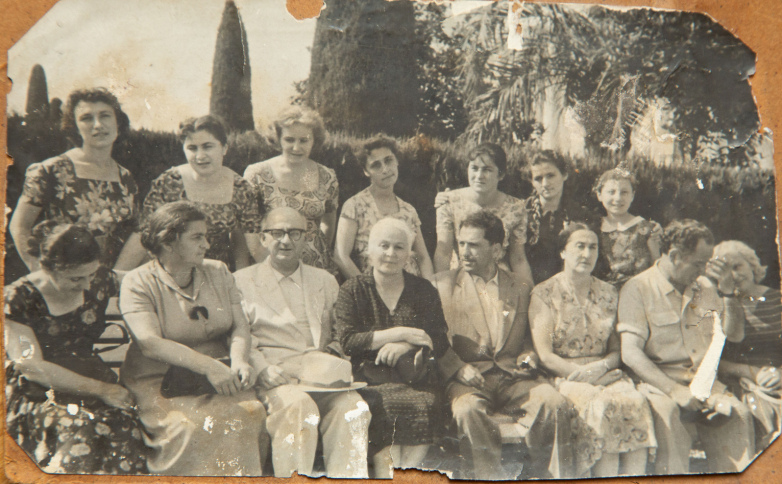
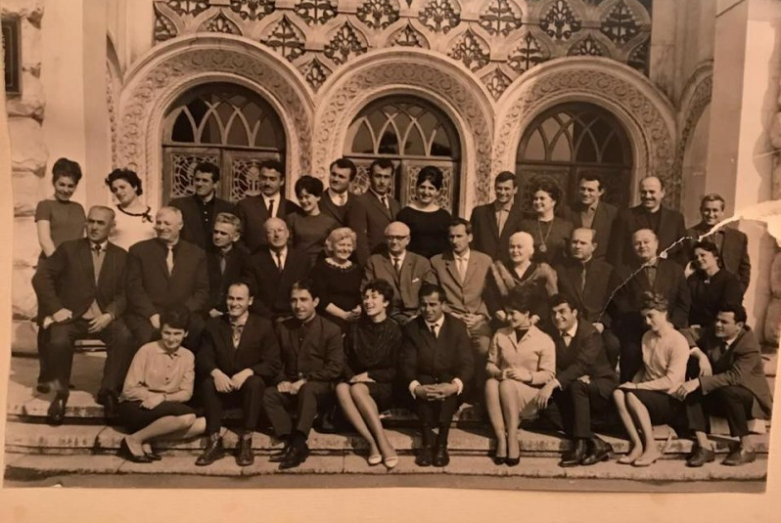
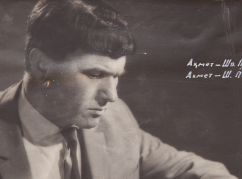
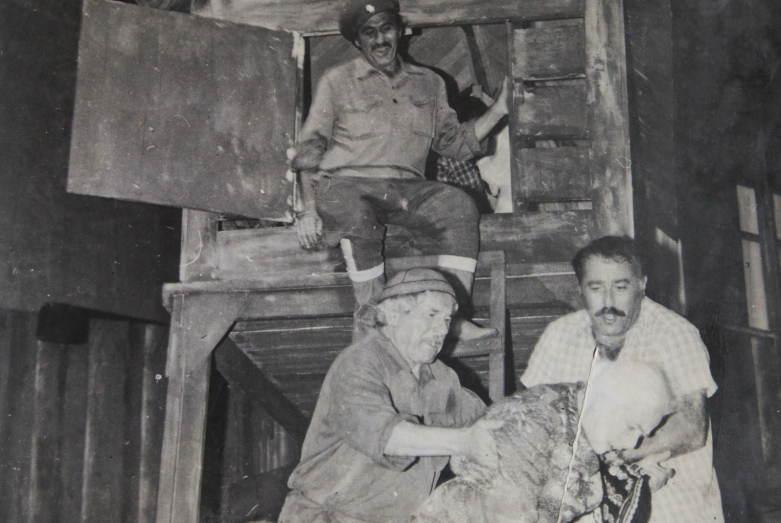
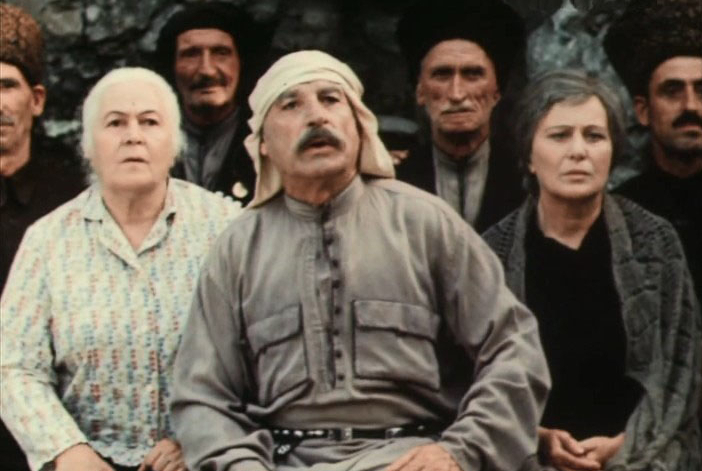
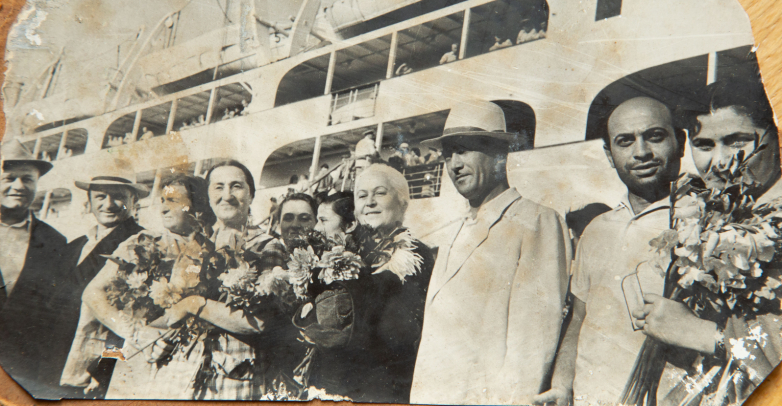
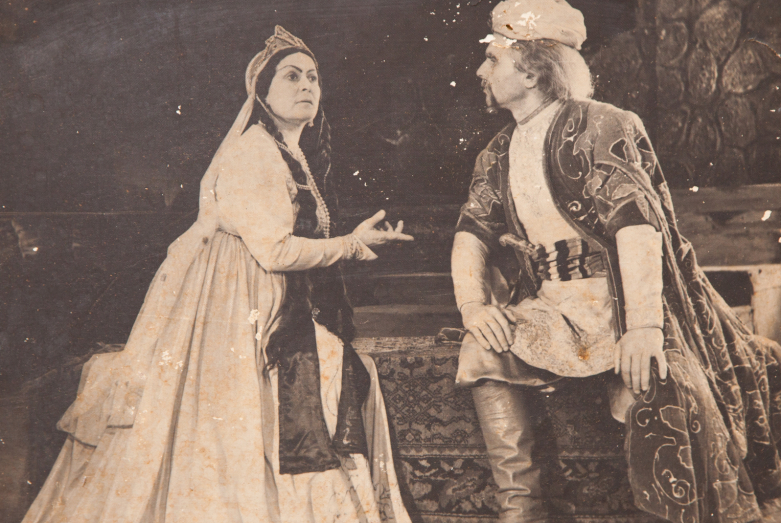
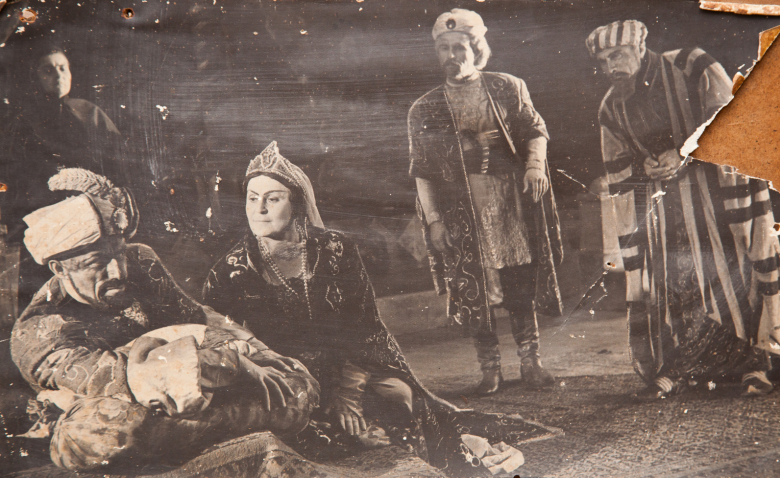
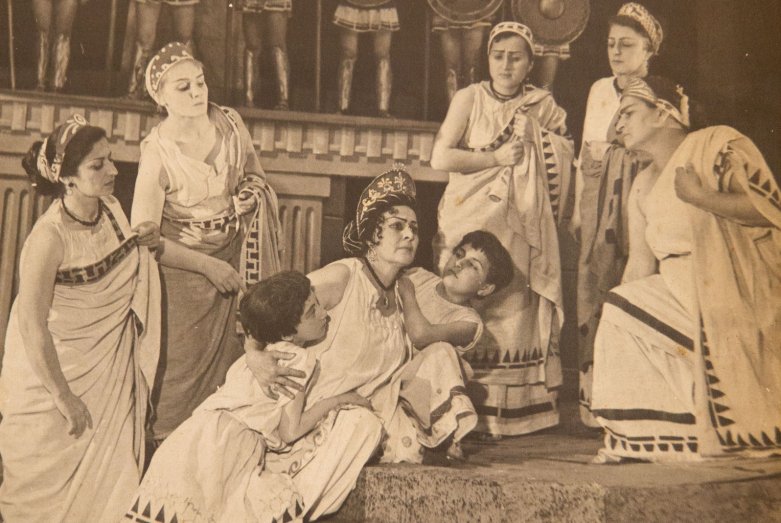
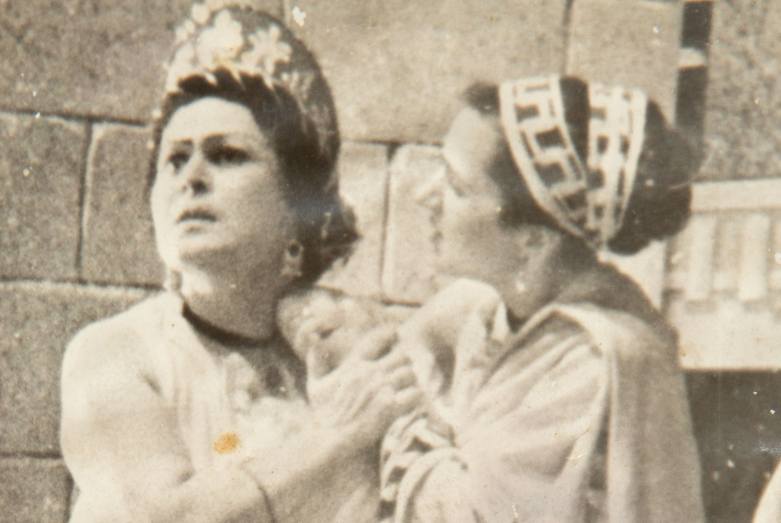
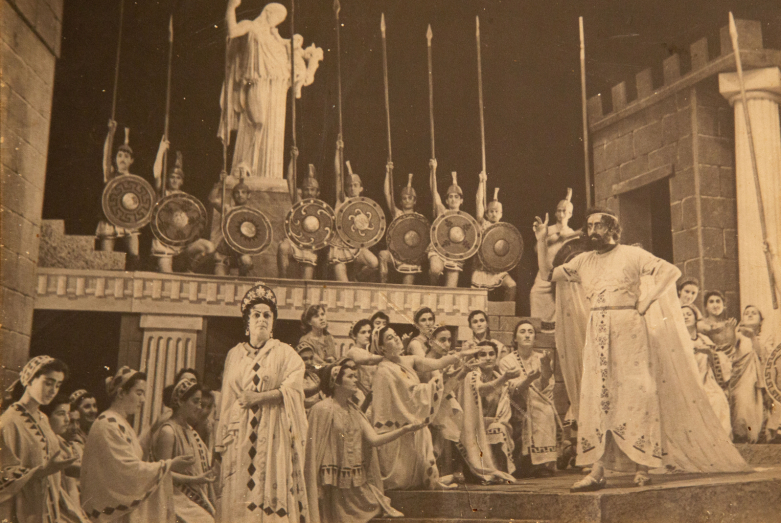
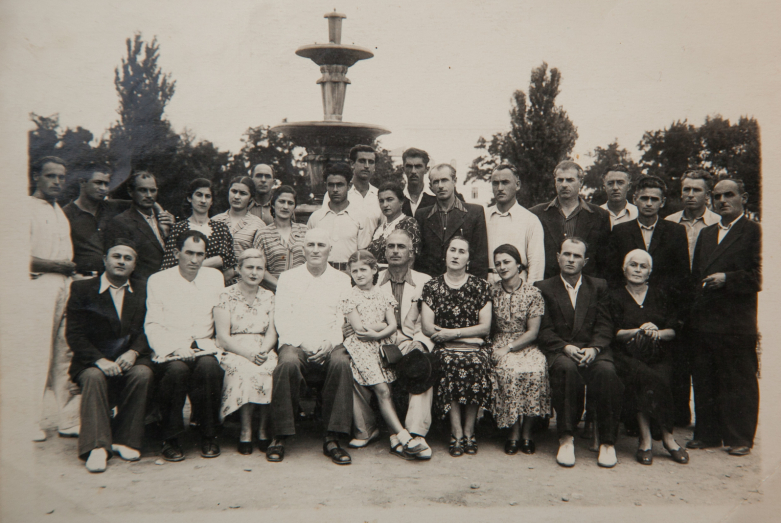
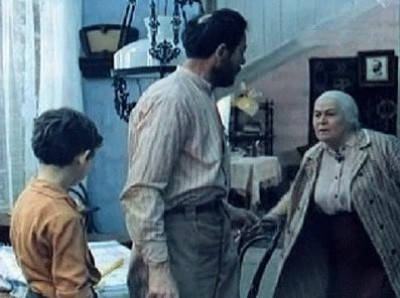
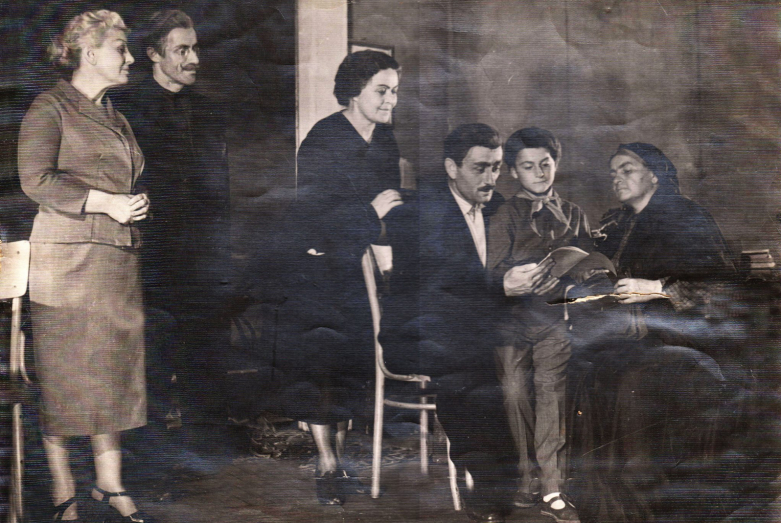
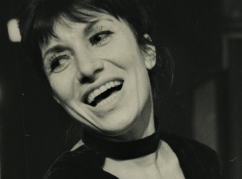
to login or register.